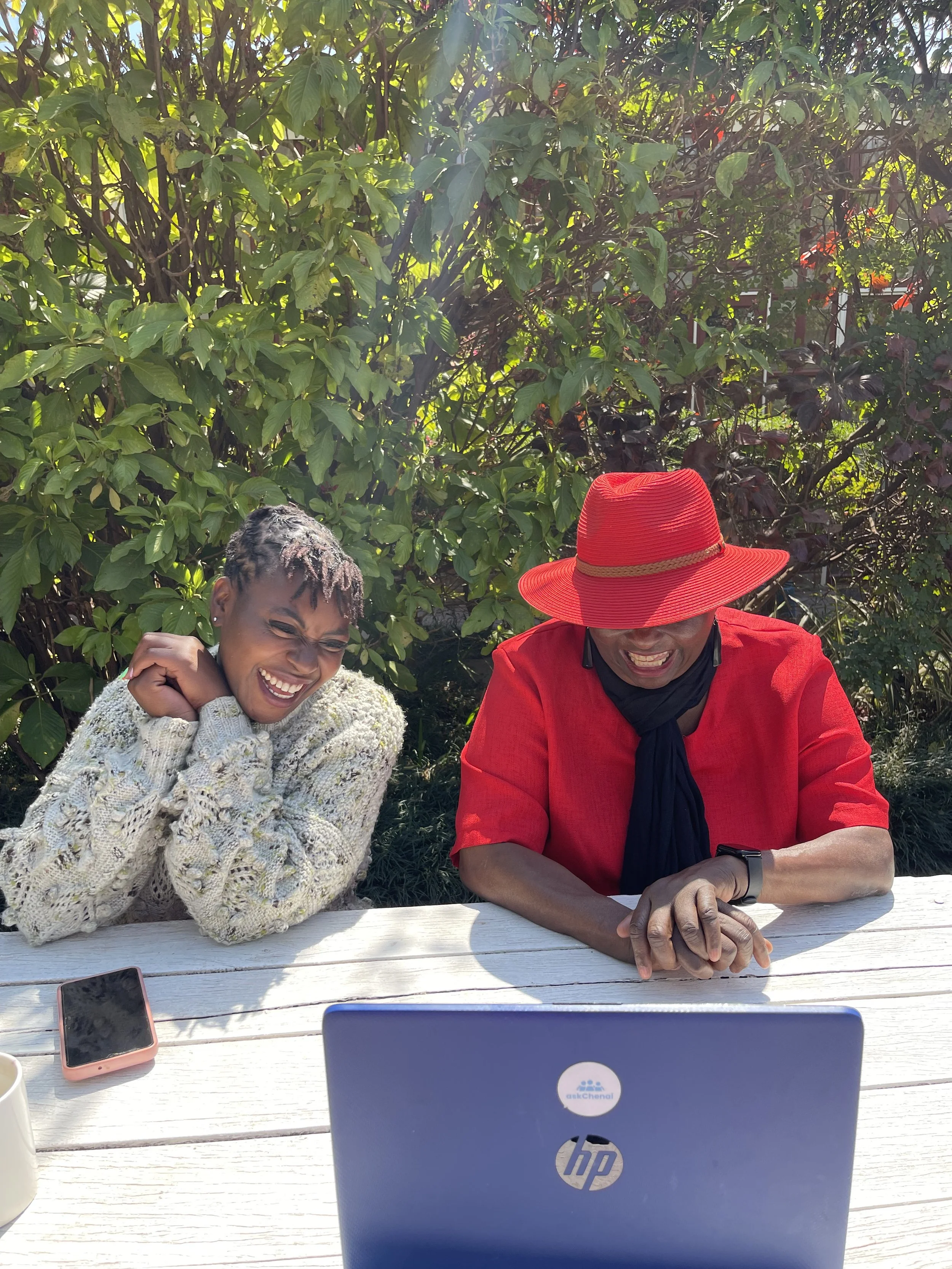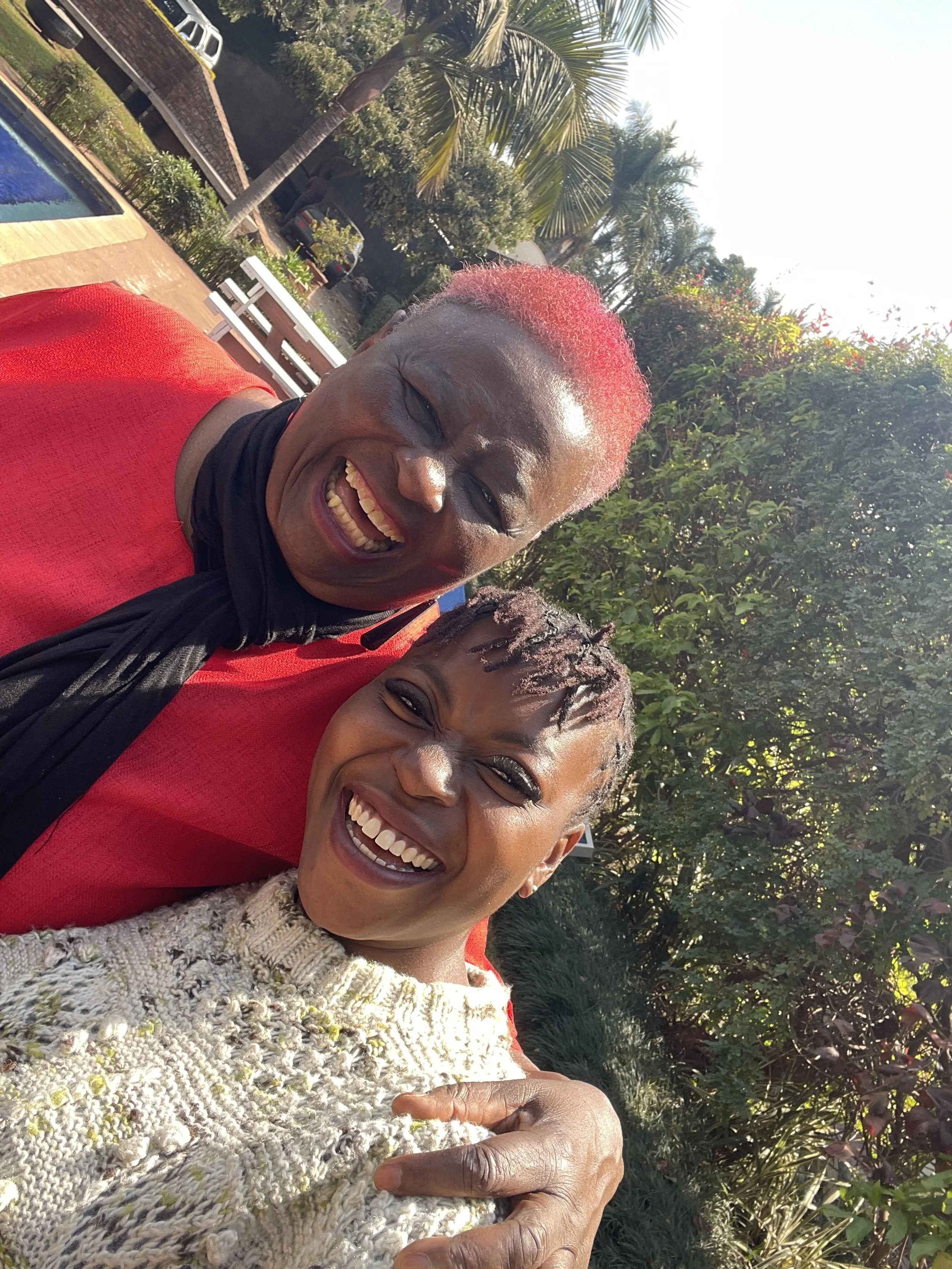The Women Who Raised Us Were Loud, Brilliant, Unapologetic - An Extraordinary Conversation with Margaret Chidzonga
If there’s one thing Zimbabwe will never run out of, it’s big personalities, especially our women: our mothers, our grandmothers, aunties, sisters and daughters.
You just know the type - full of charisma in the best way. The kind of women who in another generation would be global stars, household names.
These are women who can command a room without even trying. They wear outfits that announce themselves before they speak. Many have unparalleled entrepreneurial grit, and can show up exhausted, grieving, or holding ten other people’s lives together, with presence.
When Vimbai Mkaronda and I started our podcast Extraordinary Conversations with askChenai, we dreamed about sitting across from people like that.
We also wanted to shine a light on a certain kind of story. Authentic Zimbabwean stories. Women's stories. Black stories. Our stories.
Margaret Chidzonga is one of these women - and very much her own category.
Today in Episode 3 of our podcast " The Final Boss of Zim Aunties" that dream shows up in full force. I’ve actually listened to this conversation three or four times already, and not just in editing, but because it exhilarates me. I had my notebook in hand. I was soaking up every gem. This is exactly what I imagined when I started this podcast, and I cannot wait for you to hear it.
Listen to “The Final Boss of Zim Aunties” - An Extraordinary Conversation with Aunt Maggie Chidzonga
🎧Spotify - listen and follow us here
🎧Apple podcasts - listen and follow us here
🎧Youtube - listen and follow us here
It’s a long episode because honestly, there’s nothing I could cut out. This isn’t just another interview. It’s a living archive.
Her Origins: Discipline in a Disciplined Era
She grew up under Rhodesian rule, in a household where rules were non-negotiable. A father who believed in standards and told her
"I am raising you to employ Ian Smith, not the other way around".
A mother who modelled leadership and elegance on a budget, sewing style into existence when the shops were segregated and options were limited. That mix of high expectations and hard realities forged a particular kind of confidence.
Education on the Move
Although she was living in what was then known as Rhodesia, she went to boarding school at the young age of 11 in Malawi
"The train would take three days ... And, you know, the girls had to be looked after because they just would abduct anyone and they would never be heard of. There were such stories"
She later studied in the UK during the liberation struggle. Weekends were not for brunch; they were for organising.
Fundraising, sourcing supplies, sending support to fighters in Mozambique and Zambia. The diaspora wasn’t just watching history; it was participating. This is the part of our elders’ lives we rarely hear in detail.
Then once somebody said to me, you know, there are Rhodesians who meet every weekend to try and plot ways and means of getting independent. We had fighters in Mozambique and Zambia who needed our support. So we were sending clothes, money, you name it, sourcing medicines. Via most of the leaders.
Love, Migration, and Refusing to Disappear
She meets Edwin in Birmingham - an origin story so cinematic it should have opening credits. This begins the long braid of a life lived across Zimbabwe, the UK, and Switzerland. Marriage and motherhood arrive, but the self doesn’t vanish. No “after I had kids I became invisible” narrative here. She stays Maggie. On purpose.
Then comes Zurich in the 90s: new language, no help. It’s lonely. It’s hard. She calls home; her mother says (with that signature auntie practicality), learn the language, go play tennis, make a life. So she does.
Entrepreneurship With Standards (and Spine)
Back in Harare, she buys a tired spa and cleans house - literally and morally. Out go the shortcuts and the sleaze. In comes wellness with dignity, training with rigor, and a standard that says: excellence isn’t a white thing; it’s a you thing. She turns a failing business into a brand people trust.
I was one of the few blacks then... the moment a black person comes, they will say, ah, the standards are going down. So I had to fight that and say, no, a business is a business and I'll put a model where excellence is what we aspire for.
This is the quiet revolution few celebrate: black women building institutions that last.
The Philosophy: She Belongs to Herself
If there’s a thesis to this episode, it’s this: self-love and self-reliance are non-negotiable. Not as Instagram affirmations, but as a way of moving through the world.
What I would say to women young one you must know yourself. Who are you? And when you know yourself and love yourself, then you are able to love anybody else. That's one. The second thing, there's no competition.
We say “archive our elders” like it’s a project. It’s not. It’s a responsibility.
Someone called me and said, “There’s a whole generation of people who, if we don’t archive their knowledge now, it will be gone forever.” They were right.
The stories in this episode aren’t just nostalgia; they’re blueprints - for grit, for reinvention, for loving yourself loudly in cultures that prefer you quiet.
If you’ve ever tried to build a life across borders, roles, and expectations without losing yourself, this one is for you.
Listen to “The Final Boss of Zim Aunties” - An Extraordinary Conversation with Aunt Maggie Chidzonga
🎧Spotify - listen and follow us here
🎧Apple podcasts - listen and follow us here
🎧Youtube - listen and follow us here
For more insights like this, follow me Chenai Gondo, PhD
To learn more about askChenai or how to work with one of our fantastic assistants - explore our website!

